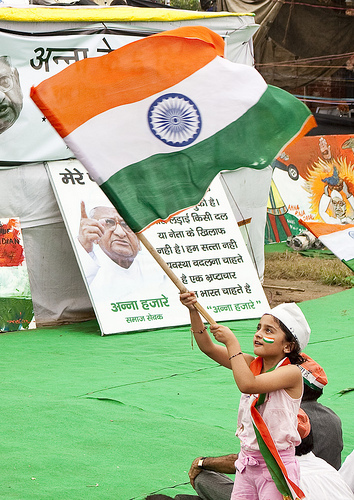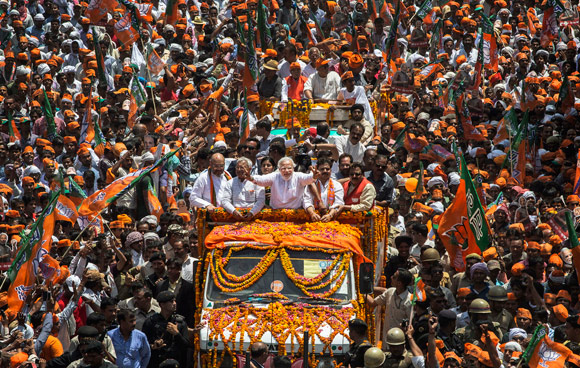Aam Aadmi Party: Catalyst for Change?

With a rapidly growing membership and a remarkably progressive agenda that seeks to upturn many of India’s current, socio-economic-political practices, it is no surprise that the Aam Aadmi Party (AAP) has evoked more than a little interest among the Indian public. Formed in November of 2012 by Arvind Kejriwal, the party shocked the nation by winning 28 out of 70 positions in the Delhi Assembly the year after its inception- a feat no doubt enabled by the grassroots appeal of its policies.
The AAP’s recently released manifesto maintains the stringent anti-corruption and pro-rights stances that have proved essential in gaining the widespread support the party enjoys today. Specified in the document is a zero-tolerance policy for graft for all public servants- those found guilty would be “removed from their jobs, sent to jail, and their property confiscated”. The notoriously drawn-out judicial process would be fast-tracked in these cases, with trials involving high-profile politicians completed in a year.
A dedication to education, women’s rights, and gay rights forms the crux of the AAP’s political philosophy. The party’s Delhi statement includes provisions for the expansion of state-run universities and the overall improvement of quality of education, along with the establishment of a fast-tracking system for rape cases and better police protection of public spaces- sentiments that resound across the nation. In a country of many anti-gay public figures, the party’s stance on homosexuality is of note; Kejriwal has made the push for the repeal of Section 377 of the Indian Penal Code (the legislation criminalizing gay acts) a party-wide effort.
Despite the party’s laudable liberal agenda, controversy is no stranger to Arvind Kejriwal and the “Common Man” party. The youth of the party, albeit an advantage in securing interest from the population of India, leaves it susceptible to administrative issues (whereas rival long-standing political installations such as the Bharatiya Janata Party possess the experience and financial clout necessary to bypass such issues). The most prominent among these is funding; the party’s coffers currently hold less than Rs. 20 crore (less than five million dollars), far less than needed to fund each of the 426 candidates nationwide.
Furthermore, the question of implementation once elected remains – the goals of the party may be rendered unachievable, especially given the controversial nature of some policies and political inexperience. Rival factions are seizing upon Kejriwal’s resignation as Chief Minister of Delhi after 49 days as symptomatic of the naivete of the party as a whole. The incident has disillusioned some middle-class voters, with one saying “Kejriwal has cheated us. He quit as CM to seek a national role, and Delhi had to be put under President’s rule. Where are the promises he made? This man could not run a state, how can we trust him with running the country?”
It remains to be seen whether or not the AAP will follow through with its promises following the approaching Lok Sabha elections. If so, it may very well be true that in Kejriwal’s party lies the hope for a better India.
[Image Attribute: Flickr User]



